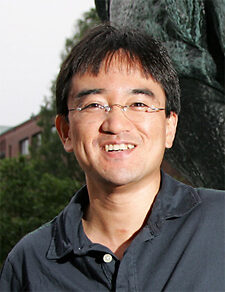Seminar "Multiple dopamine systems" by Professor Naoshige Uchida

Date
Location
Description
Title: Multiple dopamine systems
Speaker: Professor Naoshige Uchida
Affiliation: The Center for Brain Science and Department of Molecular and Cellular Biology at Harvard University
Abstract: Dopamine is a neuromodulator that plays important roles in reward-based learning, motivation and movement. However, the nature of dopamine signals remains debated. It has been postulated that dopamine neurons constitute a homogeneous population signaling reward prediction errors or the discrepancy between actual and predicted reward. However, increasing evidence suggests that dopamine neurons projecting to different targets encode different information. In a recent study, we have compared the activity of dopamine projecting to the ventral striatum ("VS dopamine") and those projecting to the "tail" of the striatum ("TS dopamine") using fiber fluorometry (photometry). TS dopamine showed strong excitation to novel odor cues, whereas VS dopamine showed no responses to novel odor cues. Additionally, TS dopamine showed excitation to several types of stimuli including rewarding, aversive, and neutral stimuli whereas VS dopamine showed excitation only to reward or reward-predicting cues. Together, these results demonstrated that there are distinct populations of dopamine neurons, one signaling reward prediction error (VS dopamine) and another signaling salience (TS dopamine). These results suggest that we need a better theory to account for the nature of dopamine signals as well as the function of dopamine.
Biography: Naoshige Uchida is a professor at the Center for Brain Science and Department of Molecular and Cellular Biology at Harvard University, Massachusetts, USA. He did his graduate studies on molecular mechanisms of synaptic adhesions in Masatoshi Takeichi‘s laboratory at Kyoto University, Japan. He started studies on olfactory coding in Kensaku Mori‘s laboratory at the Brain Science Institute, RIKEN, Japan. He then joined Zachary Mainen‘s laboratory at Cold Spring Harbor Laboratory, New York, USA, where he started psychophysical experiments using rodent olfactory decision tasks. In 2006, he started his own laboratory in Harvard University. He studies neural mechanisms of sensory coding, decision making, and reward-based learning using rodent psychophysics, optogenetics and multi-electrode recordings. More recently, his research has focused on the midbrain dopamine system.
Subscribe to the OIST Calendar: Right-click to download, then open in your calendar application.



